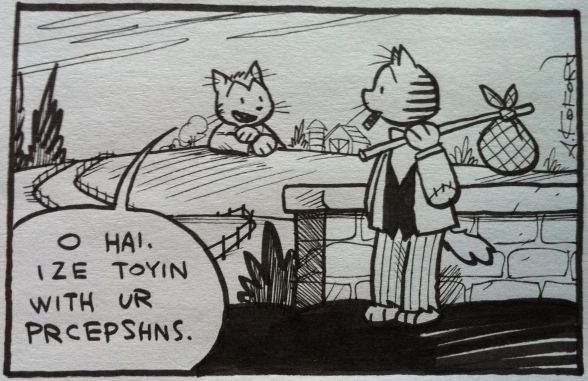On Beauty, Smith. No. I chose this due to its performance in the Tournament of Books. I started to hate it with the first sentence, but forced myself to give it more of a look. It finally defeated me ten pages in with its power of making me not give a rat’s ass about any of the characters. Oddly (since the author is from London), I found the idiomatic English overdone, as though she is writing for an American audience of hyper-Anglophiles. Even the American character speaks like a Brit—"How am I meant to react?"—though this is not consistent, as she later says "ass", which her husband re-figures to "arse". All in all, very distracting.
Books of Swords Review
The First, Second, and Third Books of Swords, Saberhagen. If you like that sort of thing. I re-read these to see whether I missed anything cool in Ardneh’s Sword. The refresher did clear up the otherwise-inexplicable pointless character from AS, but, if anything, made the latter work even more of a disappointment in retrospect. There’s not even the slightest hint, in the fairly explicit exegesis presented in the Swords books, of the direction Saberhagen would, twenty-odd years on, decide to retrofit into the saga. I can construct a somewhat tortuous chain of reasoning by which the two ontogenies are not outright incompatible, but the author should be shooting for a very satisfying click as all the pieces fit together, not "Well, if you interpret what Draffut said this way, I suppose it still makes sense…."
On their own, the three original Swords books are just fine, as is the Empire of the East before them. I don’t have any immediate intent to re-read the eight Lost Swords books.
Mary Evans Picture Library
A frequent contributor to Fortean Times, the Mary Evans Picture Library is pretty darn cool.
Wordsearch
A really nice free wordsearch maker tool. Useful for making your own activity placemats.
International Language… Crochet.
People who have figured out that the Japanese have advanced cute technology that can be harnessed in cute crafts.
Info and Substitutions
A Cook’s Thesaurus, and like a regular thesaurus, some substitutions are better than others…
Misc. Victoriana
Victorian London, in many guises.
Edisonclarification!
To clarify, those Edisonblog! posts are drawn word-for-word from his diary (available as scanned pages here). He’s an odd guy, that Edison.
The Best Folk Are Circus Folk
Page upon page of archived photos of circus folk.
Patently rhetorical questions
Toward the end of an article about how computers are getting too good at text recognition is an odd bit: "H-P no longer owns the patent, said Brigida Bergkamp, a spokeswoman for the technology giant. She declined to disclose what had happened to the patent." The patent was acquired by an undisclosed buyer? Isn’t the point of a patent to get people to license it? Isn’t that made harder if they can’t find out who you are? Isn’t who holds a patent public information?
